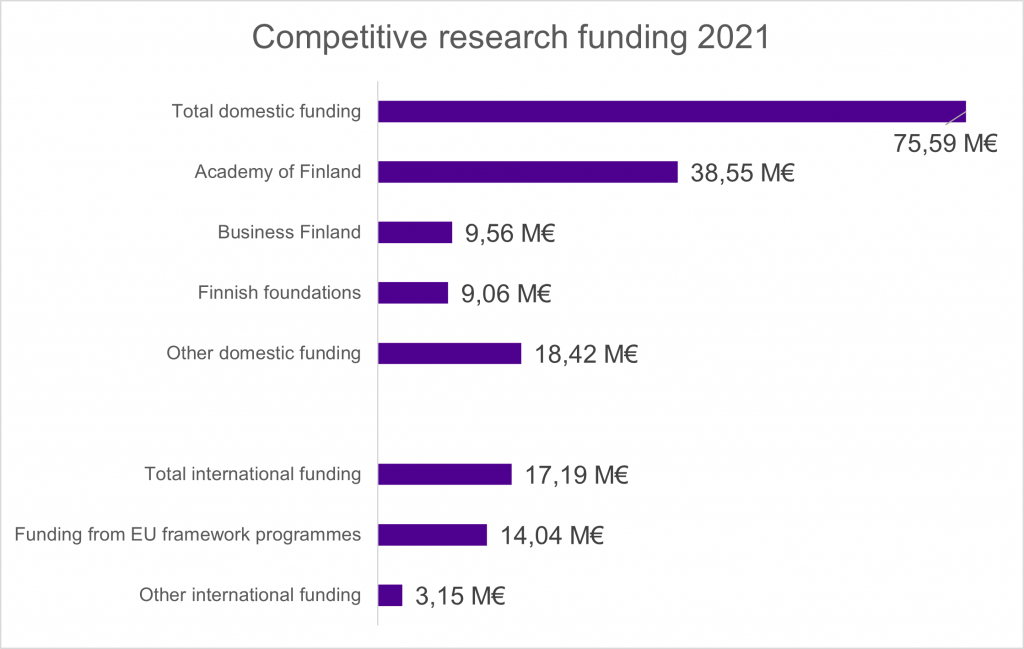
In 2021, our research productivity recovered from the pandemic crisis. Both the amount and use of competitive international research funding increased from the previous year. We have succeeded in increasing the amount of funding secured from the EU’s framework programmes faster than expected and are already close to the €14.5 million goal set for 2024. Competitive domestic funding returned close to pre-pandemic levels.

When the year 2021 ended, Tampere University coordinated three Centres of Excellence (CoE) funded by the Academy of Finland and was a partner in three other CoEs. In the new CoE term running from 2022 to 2029, we will also be coordinating the new Centre of Excellence in Tax Systems Research and participating in a further three new CoEs.
Read more about Centres of Excellence, Flagships and ERC projects at Tampere University.
We received continued funding for the Academy of Finland’s Finnish Flagship on Photonics Research and Innovation (PREIN), which we coordinate. We also participate in two other projects funded under the Finnish Flagship Programme, namely the Atmosphere and Climate Competence Center (ACCC) and Forest-Human-Machine Interplay – Building Resilience, Redefining Value Networks and Enabling Meaningful Experiences (UNITE).
The emerging fields defined in our strategy were strengthened by allocating Academy of Finland’s funding for building a stronger research profile (Profi funding) to new tenure-track professorships, postdoctoral positions and multidisciplinary projects.
We launched two new projects funded by the European Research Council (ERC) in 2021. When the year ended, a total of eight ERC-funded projects were underway at the University.
In the autumn of 2021, we launched two new initiatives to promote the quality and impact of our research. Tampere University’s research platforms are strategic, fixed-term research programmes that cut across disciplinary and faculty boundaries. The first two research platforms are Towards Effective and Equitable Welfare Services (TRANSFORM) and the Research Platform for Climate Neutral Energy and Society (CNESS).
Read more about the TRANSFORM research platform.
Read more about the CNESS research platform.
We also established a new multidisciplinary research collegium – Tampere Institute for Advanced Study – that awards competitive research fellowships to researchers from all the disciplines represented at Tampere University without thematic or other prioritisations. In the first call for applications, 18 outstanding young researchers representing the broad fields of technology, health and society were selected among 662 applicants to join Tampere Institute for Advanced Study. During their two-year research fellowships, they will focus exclusively on their research to reach the next stage in their academic career.
Read more about Tampere Institute for Advanced Study.
Our publication profile developed in line with our goals in 2021. Of all the peer-reviewed scientific papers authored at Tampere University, 34.5% were placed to the top two levels in the national three-tier classification system (Jufo 2, Jufo 3). The number of publications increased by one hundred from 2020. The share of openly accessible publications rose to 73.4%.
3,618 peer-reviewed scientific papers were published in 2021.
The share of openly accessible publications was 73.4%.
Find out more about the work of our researchers.
